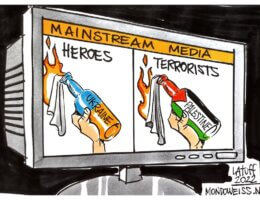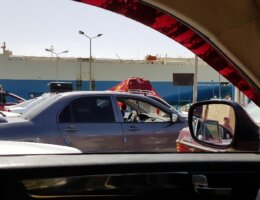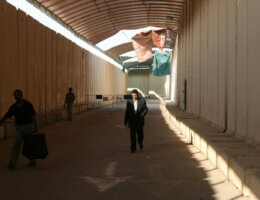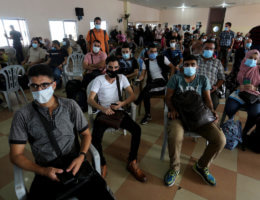Western support for Israel is explained away by shared interests and realpolitik, but this elides an underlying anti-Palestinianism that motivates pro-Israel bias.
The pro-Israel tactic of accusing advocates for Palestinian rights of antisemitism is weakening, as shown by a series of recent attacks. Now labelling Amnesty International an antisemitic organization for stating that Israel practices apartheid can only discredit those tactics further. Palestinians are becoming more relatable to the world, and the antisemitism charge is transparently its own form of bigotry, for it denies Palestinians the right to self-determination.
Emad Moussa calls on Palestinians and their allies to avoid dealing with the accusations of antisemitism in a defensive fashion; for it distracts from the moral objectives of the Palestine problem. Rather, we must declare: It is bigotry not to recognize Palestinians as an independent entity and acknowledge their historical rights.
Unlike the three previous wars on Gaza, the May war, albeit shorter – eliminated many of my childhood and teenage years’ memories. It was more personal than the others. This time, Israel stepped up its aggressiveness by attacking the heart of Gaza City, a place that often escaped the intense bombing. And in the two weeks I stayed there in June, I don’t think there was a single day without the drone noise in the background.
As I traveled back to Gaza through Egypt for the first visit in 15 years, and complained about the endless humiliations, other Palestinians insinuated that I had lost my Palestinian stamina! As if you qualify as a true Palestinian only if you’re crushed at every corner. But it didn’t take me long after the Suez canal to switch back to the Palestinian mindset: a high level of fight-or-flight that I thought no longer existed. Disturbingly, it was comforting to know ‘you still had it.’
Emad Moussa recalls his first trip out of Gaza, with his grandfather, as the pair rode by their original village of Al-Sawafir Al-Gharbiyya, now ruins sheltered by cactuses and trees. “He was, like every other Palestinian, a nomad traveling across a landscape of memory,” Moussa writes. “Like all others, his memory was premised on three main motifs: the praise of a long-gone paradise lost; the lamentation of a present defined by military occupation; and, the hopeful visualization of a return to Palestine, where justice will finally be served.”
Israel’s self-perception as forever-threatened is an unshakable psychological constant justifying attack on perceived enemies, Emad Moussa explains. Fear, anger, and vengeance are directed at what Israelis see as a Nazi replacement, anyone who presents a threat to the state of Israel. Iran replaced Iraq as Iraq replaced Egypt, and Palestinians – always.
For Palestinians, Biden is better than Trump, no doubt. But is he good enough? What matters now is Palestinian internal unity and developing a sound strategy different from the one the Palestinian Authority has thus far embraced and which led to multiple failures and crises.
Following Gilad Shalit’s capture in 2006, Israel bombed Gaza’s infrastructure and killed nearly 200 people. But the Netflix show “Fauda” adheres to the liberal Zionist ideology so it retells the story to show the the Israeli commandos shed little blood, and the Hamas mastermind is a sellout. And memo to the producers– Palestinians only say “habibi” as a same-sex greeting.
Travel restrictions are among the most incapacitating consequences of Israel’s military occupation — so extreme that the very idea of travelling has become a phobia for many. And if you’ve spent days in lockdown trying to get in and out of Gaza, as Emad Moussa has, you know how these fears prey on all Gazans.









